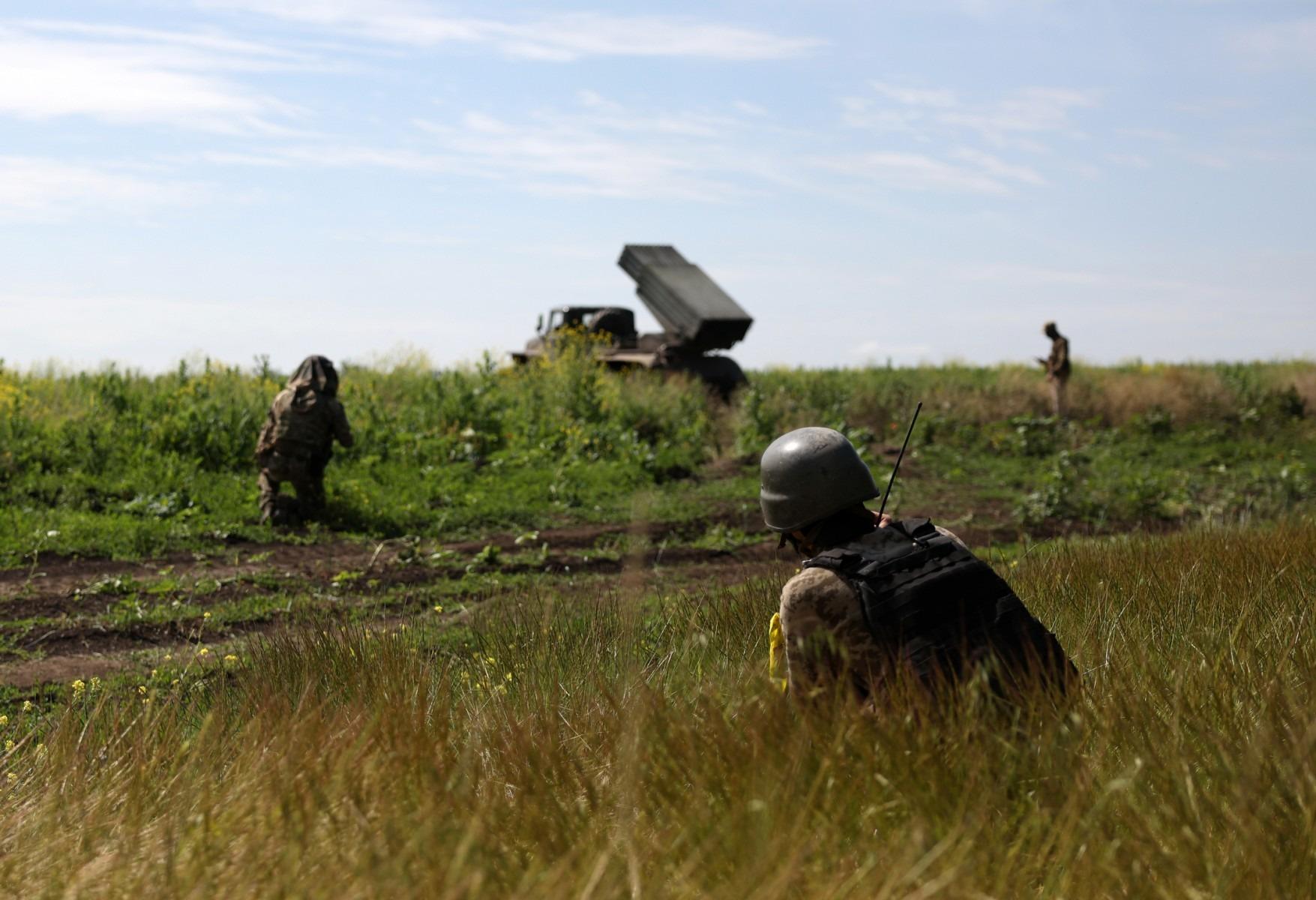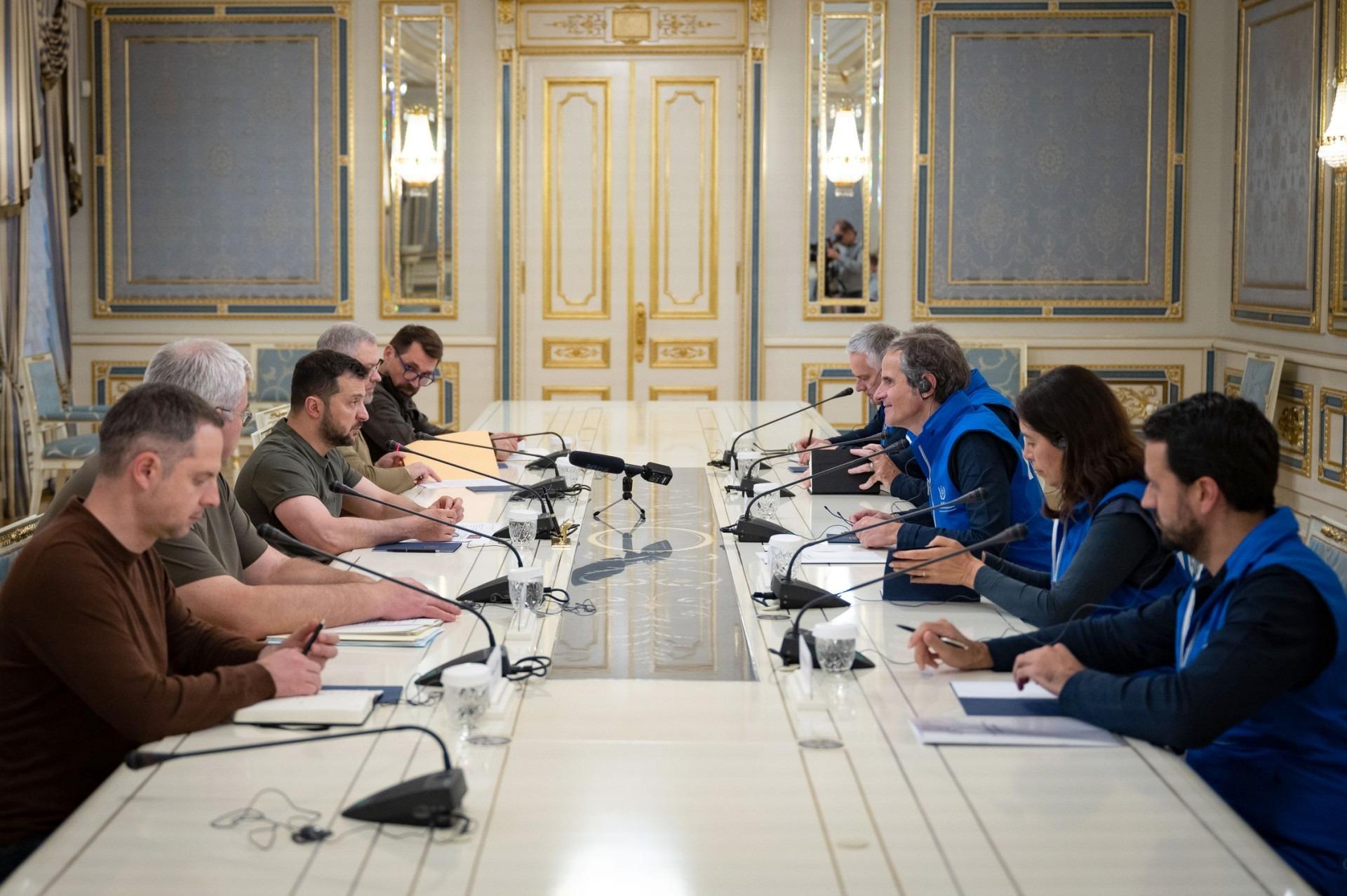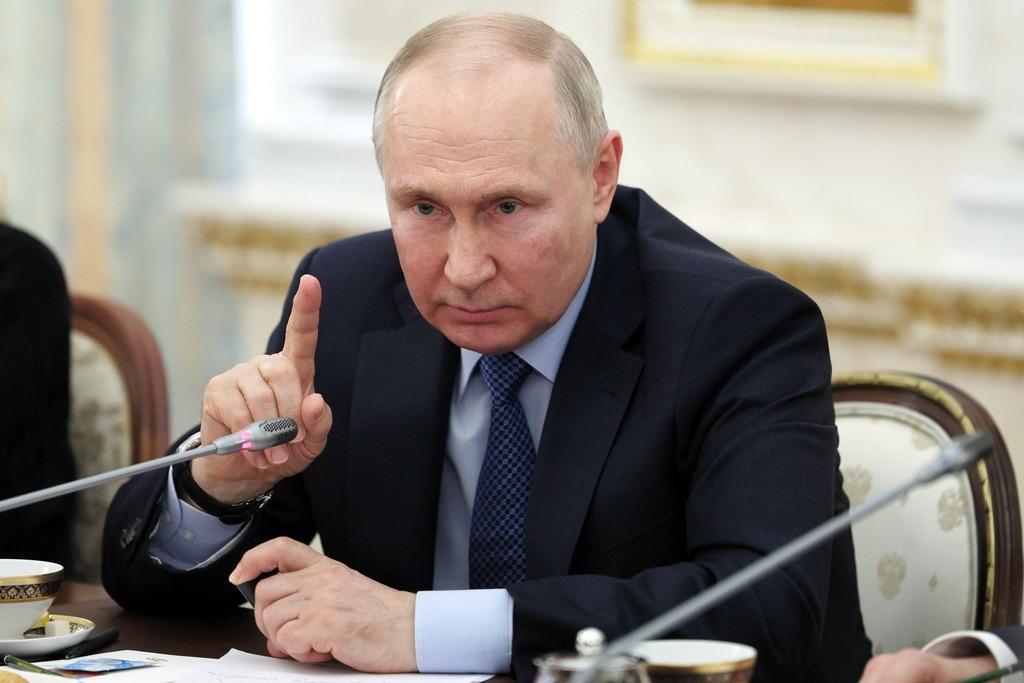 Ukrainian servicemen of the 10th Mountain Assault Brigade "Edelweiss" prepare a BM-21 'Grad' multiple rocket launcher near Bakhmut in the Donetsk region on June 13, 2023. (PHOTO / AFP)
Ukrainian servicemen of the 10th Mountain Assault Brigade "Edelweiss" prepare a BM-21 'Grad' multiple rocket launcher near Bakhmut in the Donetsk region on June 13, 2023. (PHOTO / AFP)
LONDON/COPENHAGEN/KYIV/MOSCOW - The UK-led Joint Expeditionary Force (JEF) have agreed to donate 92 million pounds ($116 million) worth of air defense equipment to Ukraine, according to a press release from the British Ministry of Defense issued on Tuesday.
The latest air defense package consists of weapons and equipment purchased via the International Fund for Ukraine (IFU), according to the ministry.
Making the donation through the IFU allows donor nations to join forces on major acquisition projects from the defense industry, avoiding "our own military stocks being pressed unnecessarily," Danish Acting Defense Minister Troels Lund Poulsen said in a government press release.
The UK-led Joint Expeditionary Force (JEF) is a coalition of ten European countries including the UK, Denmark, Sweden, Norway, Finland, Iceland, the Netherlands, Estonia, Latvia and Lithuania
The IFU was established following the "Copenhagen Ukraine Conference" in August 2022, and serves to handle financial contributions to acquire military equipment and provide aid to Ukraine.
The JEF is a coalition of ten European countries including the UK, Denmark, Sweden, Norway, Finland, Iceland, the Netherlands, Estonia, Latvia and Lithuania.
Risks to Zaporizhzhia plant
Also on Tuesday, Ukrainian President Volodymyr Zelensky met with visiting International Atomic Energy Agency (IAEA) Director-General Rafael Grossi to discuss security risks to the Zaporizhzhia nuclear power plant (ZNPP), the presidential press service reported.
At the talks, Zelensky said that the security risks to the plant have significantly increased due to the Kakhovka hydroelectric power plant dam destruction.
ALSO READ: ‘Grave concern’ over Ukraine dam destruction
Zelensky welcomed the presence of the IAEA's inspectors at the ZNPP and Grossi's intention to personally visit the plant to assess the situation on the ground.
 This handout photograph taken and released by the Ukrainian Presidential press service on June 13, 2023, shows Ukrainian President Volodymyr Zelensky (third left) speaking to Director-General of the International Atomic Energy Agency (IAEA) Rafael Grossi (third right) during their meeting in Kyiv. (PHOTO / AFP)
This handout photograph taken and released by the Ukrainian Presidential press service on June 13, 2023, shows Ukrainian President Volodymyr Zelensky (third left) speaking to Director-General of the International Atomic Energy Agency (IAEA) Rafael Grossi (third right) during their meeting in Kyiv. (PHOTO / AFP)
Zelensky and Grossi also discussed specific steps aimed at reducing the risks and preventing incidents at the ZNPP.
At the talks with visiting International Atomic Energy Agency (IAEA) Director-General Rafael Grossi, Ukrainian President Volodymyr Zelensky said that the security risks to the Zaporizhzhia nuclear power plant have significantly increased due to the Kakhovka hydroelectric power plant dam destruction
The Ukrainian president supported Grossi's proposal to send IAEA experts to Ukraine to assess the consequences of the Kakhovka incident, saying that Ukraine would provide them with all needed assistance.
Grossi tweeted that after the conversation with Zelensky, he will travel to the ZNPP to assess the situation after the Kakhovka dam flooding.
ALSO READ: Russia accuses Ukraine of blasting key ammonia pipeline
The Kakhovka hydroelectric power plant dam was destroyed on June 6, with Ukraine and Russia trading accusations over the attack on it.
The ZNPP, which has been controlled by Russian forces since March 2022, is located some 140 km northeast of the Kakhovka plant.
Denounce agreement on Sea of Azov, Kerch Strait
Separately, Russian President Vladimir Putin signed a law denouncing the 2003 treaty between Russia and Ukraine on cooperating in using the Sea of Azov and the Kerch Strait.
The treaty originally stipulated that the Sea of Azov and the Kerch Strait were internal waters of Russia and Ukraine. Vessels from both sides were allowed to navigate the Kerch Strait freely.
 Russian President Vladimir Putin gestures as he speaks during a meeting at the Kremlin in Moscow, Russia, on June 13, 2023. (PHOTO / AP)
Russian President Vladimir Putin gestures as he speaks during a meeting at the Kremlin in Moscow, Russia, on June 13, 2023. (PHOTO / AP)
The agreement, signed on Dec 24, 2003, in Kerch, entered into force in April 2004.
READ MORE: Putin: Ukraine achieves no targets in counteroffensive
Russia's State Duma, or the lower house of parliament, denounced the agreement on June 1 after the Russian president had submitted a bill on May 24. Russia's upper house of parliament, the Federation Council, approved the same bill on June 7.
Ukraine denounced the agreement in February.
 |
 |
CHINA DAILY HONG KONG NEWS |
OPEN |